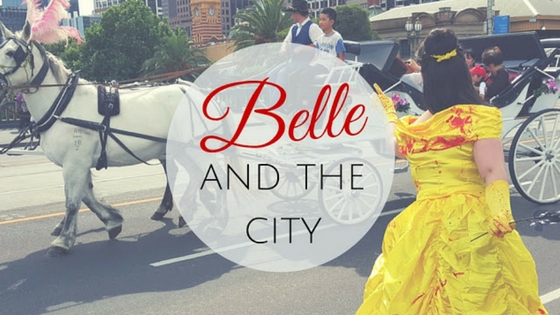Let us talk about COVID-19
I've had enough of videos titled 'My life in quarantine' where entertainers do nothing but not-self-isolate or try to take my mind off the current situation. To them, I say: no, let's talk about COVID-19! We are experiencing a very peculiar historical, medical, and social situation here. This hasn't happened in a long time and we're in this together.
Wait a second, you might say, we had SARS, Avian flu, and the Asian flu pandemic of 1957, what makes this different?
Why thank you for asking, this time is different because we're here-together-now despite not being together at all.
Also, a similar pandemic has rarely been seen in modern history and even then, history is written by the winners. Let's consider the 13th-century plague: everything we know about it is what the historians recorded. And the few texts that made it past revolutions, destruction, time, censorship, and elite. You know, back in the day, only few could read, even less could write, and even less had means to do it freely.
And now look at us. Every single one of us can potentially connect to millions of other people from any social background, anywhere in the world, and can do it for free.
Just like I am doing now with you.
Add the fact that you can share your experience in response to mine. I am not a hermit handwriting what will be the only manuscript about the plague in France dictated by the son of the King that died protecting his people from evil.
We're the people and we're calling the shots.
Do you hear the people sing? Singing the song of quarantine.
That's why I think we should talk about COVID-19, instead of ignoring this historical moment.
Some of you might have heard of an Italian novel called 'The Decameron' that Giovanni Boccaccio wrote right when the plague was at its peak and tells the story of a bunch of lucky aristocrats who found refuge in a secluded villa and spent time telling stories to each other because there was nothing else to do.
If you ask me, I don't believe those stories to be what culture really treasured from the novel.
What's of importance is the setting itself. We got to know what 13th-century plague and quarantine was like from normal people's perspective, not from a graveyard or from a painting celebrating the Pope and the Emperor.
I hope you're sitting down because what I am about to say may seem absurd for some. The diary of Anne Frank is not only celebrated for its literary greatness, perhaps maybe more so for the importance of telling history from a different perspective.
Today, every mass media outlet talks about COVID-19 and what governments are doing and what the World Health Organisation is assessing. Every minute an updated statistic and a video that has nothing to do with current times.
What I will remember from these times is not the alleged death count, it's the stories that are being told.
Do you remember asking your grandparents about the war? The real war, not lines on a map and dates from history books. Well, imagine telling the COVID-19 story to your younglings. Imagine them being able to read your diary and watch your vlogs.
So I say, let's talk about COVID-19!
Image: via
Wait a second, you might say, we had SARS, Avian flu, and the Asian flu pandemic of 1957, what makes this different?
Why thank you for asking, this time is different because we're here-together-now despite not being together at all.
Also, a similar pandemic has rarely been seen in modern history and even then, history is written by the winners. Let's consider the 13th-century plague: everything we know about it is what the historians recorded. And the few texts that made it past revolutions, destruction, time, censorship, and elite. You know, back in the day, only few could read, even less could write, and even less had means to do it freely.
And now look at us. Every single one of us can potentially connect to millions of other people from any social background, anywhere in the world, and can do it for free.
Just like I am doing now with you.
Add the fact that you can share your experience in response to mine. I am not a hermit handwriting what will be the only manuscript about the plague in France dictated by the son of the King that died protecting his people from evil.
We're the people and we're calling the shots.
Do you hear the people sing? Singing the song of quarantine.
That's why I think we should talk about COVID-19, instead of ignoring this historical moment.
Some of you might have heard of an Italian novel called 'The Decameron' that Giovanni Boccaccio wrote right when the plague was at its peak and tells the story of a bunch of lucky aristocrats who found refuge in a secluded villa and spent time telling stories to each other because there was nothing else to do.
If you ask me, I don't believe those stories to be what culture really treasured from the novel.
What's of importance is the setting itself. We got to know what 13th-century plague and quarantine was like from normal people's perspective, not from a graveyard or from a painting celebrating the Pope and the Emperor.
I hope you're sitting down because what I am about to say may seem absurd for some. The diary of Anne Frank is not only celebrated for its literary greatness, perhaps maybe more so for the importance of telling history from a different perspective.
Today, every mass media outlet talks about COVID-19 and what governments are doing and what the World Health Organisation is assessing. Every minute an updated statistic and a video that has nothing to do with current times.
What I will remember from these times is not the alleged death count, it's the stories that are being told.
Do you remember asking your grandparents about the war? The real war, not lines on a map and dates from history books. Well, imagine telling the COVID-19 story to your younglings. Imagine them being able to read your diary and watch your vlogs.
So I say, let's talk about COVID-19!
Image: via



Comments
Post a Comment